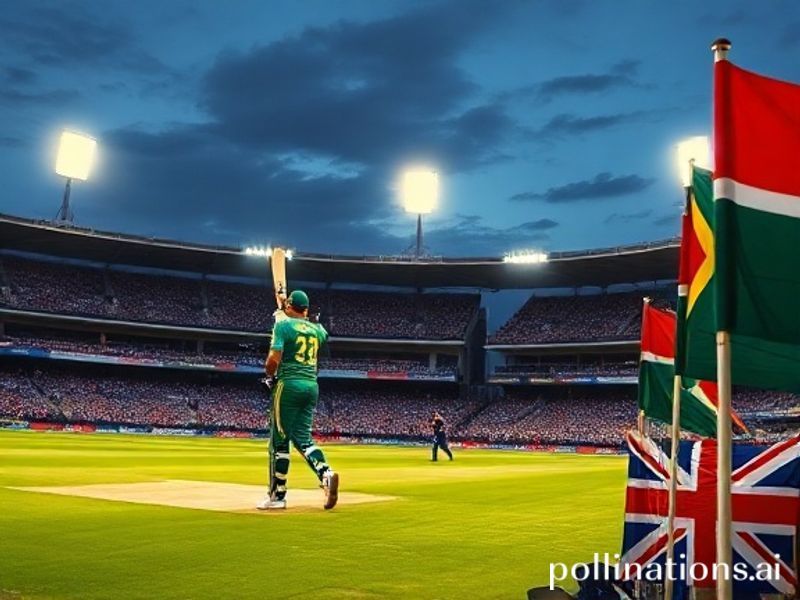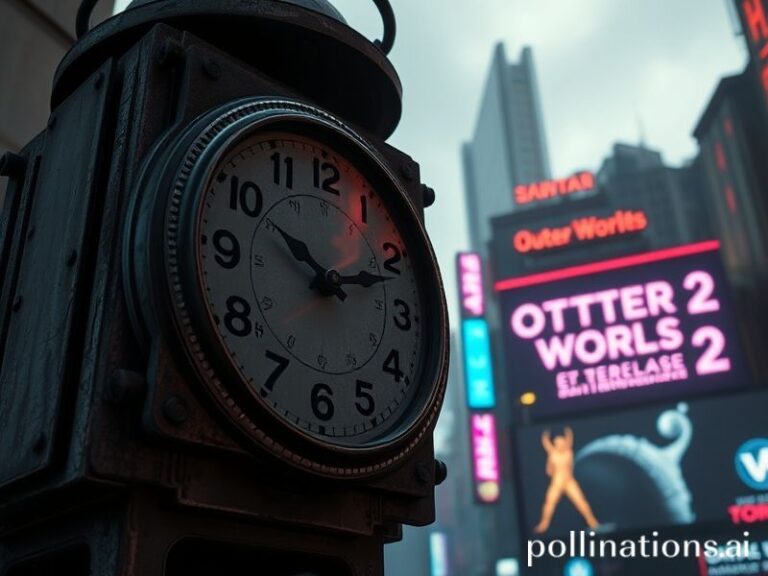South Africa vs England: The Empire’s Polite Rematch with Extra Irony and Streaming Rights
South Africa vs England: A Very Polite Colonial Reunion, Sponsored by Nostalgia and Nervous Investors
When the Proteas and the Three Lions next square off—be it on a cricket pitch, a rugby field, or, if the planet melts sufficiently, a floating barge in the Thames—rest assured the rest of the world will be watching with the same expression your accountant uses when you mention crypto: thinly veiled terror behind a smile.
From Buenos Aires to Bangkok, the fixture is less a sporting contest than a living museum piece: two countries that once shared an empire, now sharing Sky Sports subscriptions and collective amnesia about how exactly the mineral rights ended up where they did. For the global audience, the match offers a rare glimpse of history re-staged as light entertainment, like Hamilton with more sunscreen and fewer founding fathers.
The geopolitical subtext is delicious. England arrives armed with Brexit-hardened self-belief and the pound’s exchange rate flapping like a bunting in a hurricane. South Africa counters with stage-four load-shedding and a rand that behaves like a teenager on TikTok—erratic, loud, occasionally viral. Somewhere in Davos, a hedge-fund manager is live-streaming the game on mute, praying the volatility stays on the field.
International broadcasters adore the fixture because it packages centuries of messy colonial entanglement into a neat three-hour slot with ad breaks. Indian streaming services sell it as “Karmic Cricket: The Empire Strikes Back—Again.” Chinese state TV markets the rugby version as “Two Former Maritime Powers Demonstrate How to Tackle Problems Created by Earlier Tackling.” Viewers in Lagos and Lima text one another the same joke: at least the ref is neutral, unless he’s from Australia, in which case everyone loses.
Meanwhile, global supply chains watch the toss with the intensity of a cardiologist. A South African win tends to nudge platinum futures upward; an English victory usually sends gin sales spiking in places that still think “colonial” is a cocktail garnish. In the grand casino of late capitalism, even the boundary count is tradable on some blockchain you’ve never heard of, probably headquartered on a server farm that used to be a Welsh coal mine.
The players themselves are walking metaphors for 21st-century mobility. England’s squad features a South African-born opener who learned his off-drive in Pretoria and his queueing etiquette in Kent. South Africa’s pace bowler grew up idolizing Flintoff on a cracked TV in Soweto, then moved to Durham for the weather and the existential despair. Both men now field questions about “identity” from journalists who can’t remember where they parked their rental cars.
Off the field, the contest feeds the content machine that keeps the planet scrolling. Brazilian meme accounts splice match clips with telenovela music. German tabloids run sidebars on how the English still boil vegetables into submission. French intellectuals publish essays titled “Le Post-Colonialisme dans le Deep Mid-Wicket,” which nobody reads except American graduate students who pronounce “Nietzsche” correctly but can’t spell “Llandudno.”
Environmental activists issue synchronized press releases noting the carbon footprint of flying 30 athletes, 200 journalists, and one royal patron across hemispheres just to determine who can hit or kick a ball more patriotically. Their statements are dutifully retweeted by spectators currently queuing for overpriced stadium beer in single-use plastic cups. The irony is recycled, naturally.
Come the final whistle or last wicket, the handshake is always impeccable—two nations that perfected manners precisely because they once perfected plunder. Fireworks bloom, anthems play, and somewhere a commentator calls it “a great day for sport,” which is code for “please ignore everything outside the boundary rope.”
And so the caravan rolls on to the next former colony, the next streaming rights auction, the next awkward toast at the post-match banquet. The scoreboard resets, the pundits reload their clichés, and the rest of us bookmark the highlights for the existential hangover that follows any polite reunion between empire and ex-subject. History never ends; it just gets better graphics.







